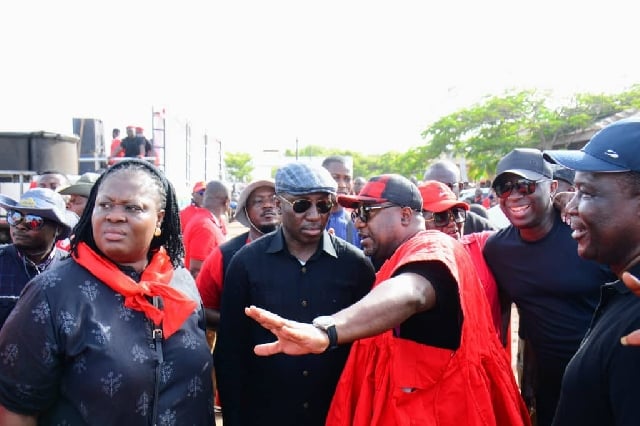The ongoing process surrounding the suspension of Chief Justice Gertrude Torkonoo has sparked controversy and raised concerns about the politicization of a constitutional procedure. Dr. Jonathan Asante Otchere, a political science lecturer at the University of Cape Coast, has criticized the New Patriotic Party (NPP) for its response to the situation, arguing that their actions are casting a political shadow over what should be a purely legal matter. While acknowledging the constitutionality of the process itself, Dr. Otchere expressed apprehension that the NPP’s stance is undermining public trust in the judiciary and creating a perception of conflict between the judicial and executive branches of government. He contends that the NPP’s behavior is portraying the process as politically motivated, which could potentially damage both the Chief Justice’s standing and the integrity of the constitutional procedures involved.
The controversy centers around the President’s adherence to the established constitutional procedure for the removal of a Chief Justice. Upon receiving three petitions calling for Chief Justice Torkonoo’s removal, the President initiated the process as outlined in the 1992 Constitution. This procedure involves forwarding the petitions to the Chief Justice and subsequently establishing a committee to investigate the allegations. Dr. Otchere maintains that the President has acted within his constitutional authority and has followed due process in handling the petitions. He underscores the importance of respecting the constitutional framework and allowing the process to unfold without undue political influence.
However, the NPP’s reaction has been a source of contention. Their public pronouncements and actions have been interpreted by some, including Dr. Otchere, as an attempt to politicize the situation. He argues that their interventions are creating an unnecessary perception of political interference and eroding public confidence in the impartiality of the process. This politicization, Dr. Otchere argues, could negatively affect the Chief Justice’s ability to receive a fair hearing and undermine the credibility of the outcome.
Adding to the complexity of the situation is the Minority’s demonstration demanding the reinstatement of Chief Justice Torkonoo. While acknowledging their right to protest, Dr. Otchere emphasizes the need for all parties to respect the ongoing legal process. He commends the Ghana Police Service for their professional handling of the demonstration, highlighting the importance of maintaining order and respecting the rule of law amidst potentially tense situations.
Dr. Otchere’s primary concern is the potential damage that the NPP’s actions could inflict on public trust in the judiciary. He stresses that the judiciary’s independence is paramount and that any appearance of political interference could undermine its credibility. This erosion of public trust, he argues, could have long-lasting consequences for the rule of law and the stability of democratic institutions in Ghana. He urges the NPP to allow the constitutional process to run its course without further politicization, emphasizing the importance of upholding the integrity of the judicial system.
Furthermore, Dr. Otchere reiterates the significance of upholding the principles of due process and fairness. He notes that the President, by ensuring that all petition documents were provided to the suspended Chief Justice, has demonstrated a commitment to transparency and fairness. This adherence to due process, he argues, is essential for ensuring that the Chief Justice receives a fair and impartial hearing. He appeals to all parties involved to respect this process and refrain from actions that could compromise its integrity. He emphasizes that the focus should remain on upholding the constitution and ensuring that justice is served, regardless of political affiliations.


